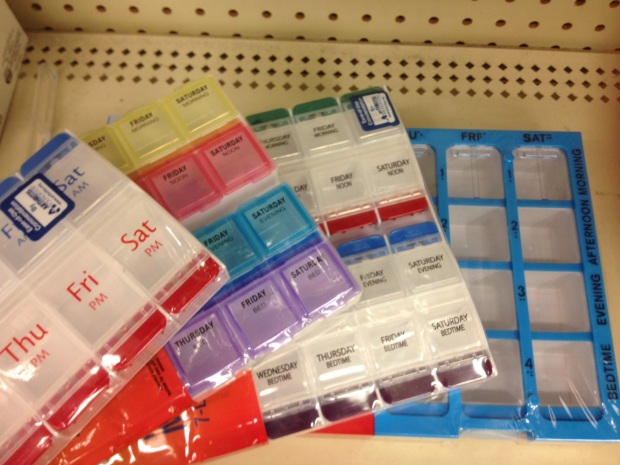
Hey Everyone!
I am about a month and a half away from completing grad school and being done with classes forever (internally screams for joy), but before I leave the realm of academia forever, I thought I’d impart some advice on how, and more importantly who, to ask for help when your illness inevitably conflicts with your classwork. Depending on how you navigated your way through high school with your illness—having an understanding with individual teachers who were “in the know,” keeping your illness to yourself and just soldiering through on your own, or having an official 504 plan in place with the administration—it might inflect your decision on how you wish to proceed in university.
Before you endeavor to keep it all under your hat and only disclose your illness to select professors when you’re too sick to turn something in, I urge you to meet with the Disability Services Office (DSO). Because here’s the thing, professors are under no obligation to give you an extension on an assignment just because you show up in their office looking like death warmed over with a pitiful back story as to why you didn’t complete that 2,500 word essay on the “Economy of Food in The Christmas Carol.” However, if you have accommodations in place through the DSO, they are obligated to help you out—to a point, but I’ll get to that in a moment.
Registering with Disability Services
This is something that should be done as soon as possible upon starting school. Actually, if you want to get a head start and contact someone in the disability office before the start of the semester that would make things easier for the both of you. That way they can give you a heads up about what materials (proof of illness, doctor’s notes, etc.) that they require to formally enroll you in the DSO. Set up an initial meeting.
Setting Up an Accommodation Plan that Works for Your Needs
Depending on your illness, your individual needs, and some educated guesswork, you and the DSO can construct a plan for accommodation. I’ll list a few of my accommodations as an example. I had the accommodations in place JUST IN CASE. When I started university I was relatively healthy for a Cystic. So, I had the plan in place to be enacted when/if I had a flare.
- Allowed to miss class and be late due to illness.
- Allowed to eat/drink in class to maintain weight.
- Use the notetaker service if missing class for an extended period of time.
- Extension on assignments due to illness.
- Separate exam taking accommodations with access to a washroom.
- Designated disability parking spot on campus.
- Centrally located to ease burden of walking.
Notifying Your Professors of Your Illness and Your Accommodations
This will vary depending on your school. Some DSO offices notify your professors on your behalf. Others give you an official accommodation letter that you are expected to hand deliver to your professors. ASK YOUR DSO OFFICER WHICH WAY THEY DO THINGS. I didn’t do this my first semester of undergrad and just assumed that they let all my professors know. So, when I got horribly sick and went to my prof to ask for an extension and said: “So you know I have Cystic Fibrosis.” He was like: “No. But I figured out something was wrong, you cough during every class.” (hides head in embarrassment) I was operating under the assumption all year that all my profs knew. BIG MISTAKE. He was great about it, but things would have been much easier had I known to give him my accommodation letter to begin with.
On that note, delivering this letter can be a little nerve-wracking, especially if you don’t like to talk about your illness. Don’t worry, after four years (six for me—oof!), the awkward after class hover so you can get the prof alone becomes a well-practiced maneuver. Most professors are very understanding and will have no problem helping you out.
However, there is a caveat. Disability accommodations are not to be abused and are not a free-for-all pass. When you get accommodations, you also sign a waiver stating that the university expects a certain academic standard to be met, even with accommodations. You can’t do zero work for a course, or miss 75% of the classes and still expect the professor to pass you. I have no worry about any of you in regards to this, because you’ve already shown the drive and fortitude necessary to go to university in the first place.
Extended Deadlines, Incomplete Classes, and Graduating on Time
Some professors although forced to “accommodate” your needs because of the DSO, will not provide much in the way of real help. I’ve had professors who gave me an extension while I was in the hospital, but still needed it “within a week.” Or, I’ve had professors insist that I attend class with my oxygen tank or risk not meeting the minimum requirement of attended classes for an accelerated summer course, because I knew I would be missing a class the following week. These professors technically accommodated me, but in reality I bent myself out of shape trying to meet their “extended deadlines” because I am too stubborn to admit that I couldn’t get it done. I was later told by one such professor that she was impressed by my work ethic and the only reason she had given me a hard time is because other individuals with accommodations had abused her good nature previously. My best advice: be willing to work and be up front with your professors. Most will appreciate that you are TRYING to get them the work, and be more willing to work with you regarding deadlines.
Navigating what type of extended deadlines work for you can be tricky. Some professors give you an exact extension date, others leave things completely open ended. I am a person that needs hard deadlines or my procrastinating brain will just languish uselessly. But, having a hard deadline that is too soon for your body to cope with doesn’t help anyone. So, I’ve finally figured out that telling your professor a tentative deadline that you “expect to have it back to them by” gives you a kick in the pants to get it completed, but—if you don’t meet that exact date—won’t result in an exhausted body due to all-nighter writing sessions while still recovering.
Sometimes you just can’t get it all done. You are too sick. You’ve been in the hospital too long. Or, you got sick too close to the end of term. That’s when professors bring up the topic of Incomplete Classes. At my school, that meant I had the entirety of the next semester to finish up my assignments and technically “complete the course.” So, I could even have audited classes with the 2nd semester students in the same class. I did it once. Let’s just say it’s a lot of work and technically you are on academic probation for the interim (which can mess up financial aid stuff so be wary!), but it gave me the time I needed to get back on track. Even if finishing up last semester’s work while taking new classes seemed impossible at times.
Finally, graduating on time. I know everyone wants to graduate with their friends and in the standard four years. Illness robs us of so many experiences, marching across stage with my girls was not something I was going to let it take from me. So, I promised myself I would graduate in four years—and I did. But I ask myself now, was it worth it? When I graduated from undergrad, I was down to 82 pounds and on IV antibiotics. Instead of starting my job search with the rest of my class and entering adult life, I went home for a year. I laid on my parents’ couch and let my mom fatten me up. It was great, but it should not have been necessary. School is supposed to help you on the way to your future life. There is no point if you almost kill yourself just trying to get through it.
So, if you need help, ASK FOR IT. If you’re sick, TAKE TIME OFF. If you need to take a gap year and recover, DO IT. School will always be there. Your health won’t.
And remember, take it one breath at a time.





